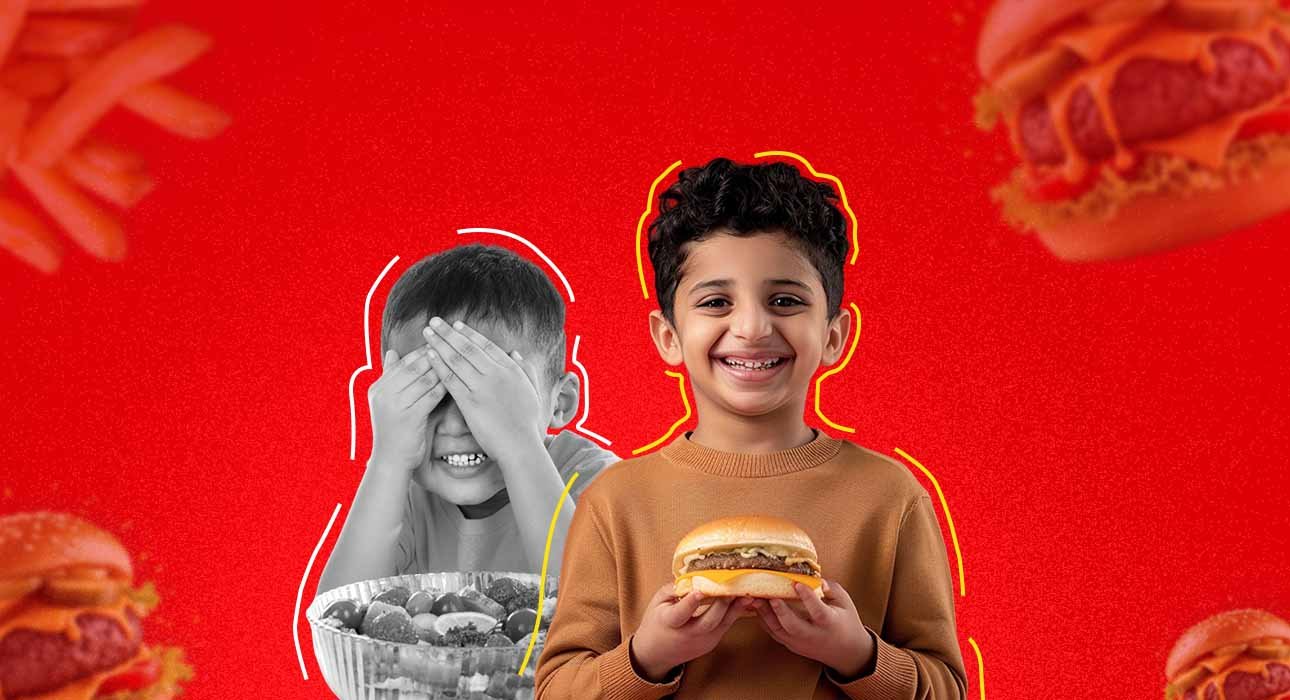We all know that food affects our bodies, but we don’t always realise how much it affects our minds too. For children and teenagers, this matters even more because their brains are still growing. Their emotions, habits, and way of thinking keep changing as they develop. In this stage, whatever they eat slowly shapes how they feel from the inside. It affects their mood, their energy, their ability to focus, and even how they deal with stress. These changes happen quietly, but they make a big difference in their everyday life.
How the Growing Brain Depends on Food
A child’s brain grows faster than we usually imagine. It needs steady fuel to think, learn, stay calm and handle daily challenges. When food is healthy and balanced, the brain stays stable. But when a child eats mostly junk foods, skips meals, or eats too much sugar, the brain becomes more sensitive and emotional about those things.
Proteins help the brain make chemicals that control mood. Vitamins and minerals help with memory and attention. Healthy fats help the brain cells grow and nurture. When these are missing, children may look moody, tired, distracted, or irritated for reasons they themselves cannot understand what is. Sometimes, parents think their child is being disobedient or dramatic, but a part of the behaviour can actually come from poor nutrition.
Read More: The Role of Nutrition in Supporting Cognitive Growth During Childhood
Food and Stress
Children face more stress today than before. School pressures, competitions, long study hours, screen time, and even social expectations can drain them. When the body is stressed, it releases a hormone called cortisol. Some foods make this system calmer and relaxed, while others make it overactive.
For example, sugary foods give a quick boost of energy but then drop suddenly. This drop makes children restless, irritated, or low. Skipping breakfast also puts the body in stress mode because the brain doesn’t get fuel in the morning. Even simple things like salty snacks, instant noodles, soft drinks, energy drinks, and processed food increase internal stress. They may look harmless, but they make the body tired and the mind more reactive. On the other hand, foods like fruits, nuts, curd, whole grains, and home-cooked meals give the brain a sense of stability. When the brain gets steady energy, the child feels more balanced and handles stress better.
Food and Anxiety
Anxiety in children and teenagers has increased a lot. Many of them complain about nervousness, a fast heartbeat, restlessness, and overthinking. Food does not cause anxiety by itself, but it can make anxiety worse or better. Too much sugar can make the body shaky and confused. Some children feel anxious after sugary drinks without knowing the reason. Too much salt or caffeine also increases anxiety. These days, teens drink tea, coffee, soft drinks and even energy drinks. These may seem normal, but they actually push the body into a more anxious state.
A lack of important nutrients can also trigger anxiety. When the brain does not get enough protein or minerals like magnesium and zinc, it struggles to regulate emotions in the body. Teenagers who skip meals often experience mood swings or worry more simply because their brains are underfueled.
At the same time, some foods naturally support calmness. Bananas, nuts, oats, curd, leafy vegetables and simple home meals give the body a sense of comfort. They help the nervous system relax and make the mind feel steadier.
Read More: Mastering Your Emotions: A Guide to Emotional Control
Food and Mood Swings
Mood swings are common in growing children, especially during adolescence. Hormone changes, the brain keeps developing, and life feels confusing at times. But the kind of food they eat can calm the anxiety and mood, or make it worse
Children who eat a lot of junk food often feel low or irritated without any clear reason why they feel that way. Their energy goes up and down suddenly, and they feel sad, low-motivated, and sometimes they get angry quickly or feel sad easily. This is not always because of emotional problems. Many times, it is simply because their brain is not getting what it needs.
Foods that help keep the mood steady include: Fruit and vegetables, Whole grains, Eggs, daal milk, Nuts and seeds, Fish and healthy fats. These foods slowly release energy, keeping the mood even throughout the day.
Read More: Calm Your Nerves: Dietary Changes for Reducing Anxiety
Food and Academic Performance
Diet also plays a big role in how a child performs in school. A brain that does not get enough nutrients becomes tired quickly. Children may find it difficult to focus, remember things, or stay attentive during class. Sometimes teachers think the child is not serious, but the real issue can be a lack of proper nutrition. Children who eat a good breakfast do better in school. They participate more, understand more, and stay emotionally balanced. Even a light breakfast like a banana, milk, oats, or bread with eggs can make a big difference.
Indian Families and Realistic Changes
In Indian families, food habits look different in every home. Some children eat very late, some skip meals, and some rely on fast foods because parents are busy or there is not enough time to cook or time to look at the food of their children. But improving a child’s diet does not need fancy or costly ingredients. Even small everyday changes can make a big difference.
Here are a few simple steps any family can try:
- Give one fruit a day. It can be a banana, an apple or whatever is available at home
- Add curd to meals.l It supports digestion and keeps the stomach calm and relaxed
- Include daal eggs or paneer, so the child gets enough protein from these
- Choose homemade snacks like roasted peanuts, channa chilla, or sandwiches instead of packaged chips and processed foods
- Reduce soft drinks and give water or fresh drinks instead, make self-made juices of fruits
- Offer a small handful of nuts or raisins datess
- Make sure the child eats a simple breakfast, even if it is light.
- Use whole wheat instead of refined flours whenever possible.
- Give more water throughout the day.
- Serve vegetables in small amounts so the child slowly gets used to them.
- Limit the coffee or energy drinks for teenagers.
These small steps slowly build healthy habits, and when children start eating well from a young age, their moods, energy, and emotional health naturally become stronger and healthier.
Conclusion
Food is not just about taste or stopping hunger. It silently shapes how the mind works. For children and teenagers, this connection is even stronger because their brains are still growing and learning how to handle emotions and understand their moods. Whatever they eat slowly becomes a part of how they think, how they feel, and how they respond to the world around them, and to look forward
When children eat nourishing foods, their mind feels clearer, calmer and steadier. They can focus better, handle stress more easily, and their mood stays more balanced. But when their diet is poor and not healthy, their emotions and feelings also become unsteady, and small things can feel harder to manage and causing mood swings and frustration.
A healthy plate is really the first step toward a healthy mind, which parents can achieve by taking care of their children’s eating habits while they are still young. We give them a strong base for their future. It helps them grow into adults who are emotionally stable, mentally strong, and better able to deal with life’s challenges.













Leave feedback about this